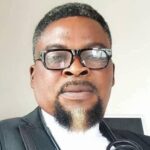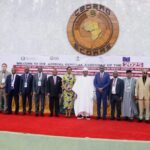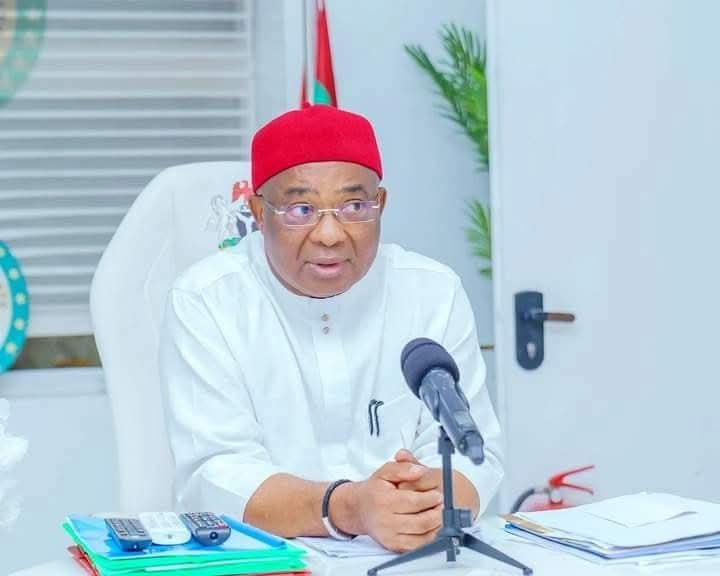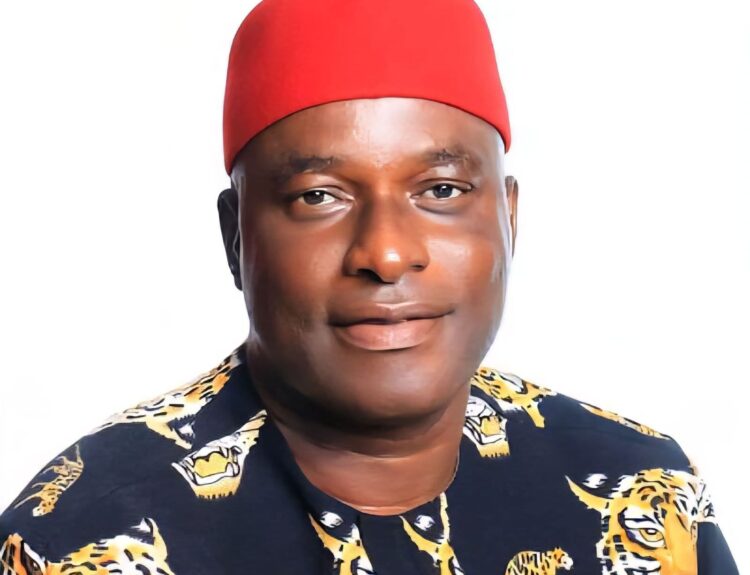By EDISON Okereke
As the American Initiative for Health and Wellness in Africa (AIHWA) observed “World Mental Health Day 2025,” in collaboration with the World Health Organization (WHO), the President of AIHWA International, Rev Father Kenny Udumka PhD, has called on Nigerians “to grow in awareness regarding mental illness.”
Consequently, he called on the stakeholders, religious groups, traditional institutions and the government to stand against the criminalization and moralization of mental illness in Nigeria based on ignorance.
In an address he presented on the occasion, at the AIHWA centre in Imo State, Udumka, noted that “the awareness will enhance knowledge of conditions like depression, psychosis, and other mental health disorders that can affect anyone irrespective of social or moral status.
For starters, mental health can be defined as “a state of mental health well-being that enables people to cope with the stresses of life, realize their abilities, learn well, work well, and contribute to their community.”
Father Udumka, therefore, enumerated some of the steps which must be taken to reduce or eradicate the stigmatization in Nigeria, to include removal of negative labelling, stereotyping, devaluation, and rejection suffered by people with mental illnesses which is usually nurtured today just by “cultural perspectives or what is considered normal and abnormal behaviour.”
According to him, “The distinction in perspectives regarding the understanding of mental illnesses and associated behaviors is fundamental because it determines the definition given to mental illnesses, their diagnosis, and possible treatment.
“For instance, in many Western societies where improved knowledge has played a significant role, mental illnesses are receiving a mental approach with improved diagnosis and treatment protocols. The reverse of this development is the case in many parts of Nigeria, where mental illnesses are considered abnormal behaviors and therefore explained and diagnosed through spiritual or social frameworks.”
He expressed concern that the lack of awareness of mental health and mental illness in general are at the root of the wrong diagnoses accorded people with mental illness and their conditions, saying that the dominance of cultural and religious beliefs in Nigeria is influenced by cultural and and spiritual frameworks.
Dr Udumka expressed gratitude to the WHO in Imo State for partnering with the AIHWA.
He said, “First, I would like to express my gratitude to the World Health Organization in Imo State for selecting this location as the preferred venue for this year’s celebration. This is a true testament of the partnership between AIHWA and the World Health Organization to make the world a healthier place for all.”
Most of the participants present fielded questions from journalists.
A WHO Surveillance Officer, who represented Dr Wadzingi Bass the Coordinator in Imo State, Dr Adeniyi Adeniran, said the programme was targeted at improving access to healtcare services, even in the midst of crisis, emergencies, and catastrophes as there is always one crisis or the other in communities and states.
“So our emphasis is on trying to seek the support of our health workers, the traditional rulers, religious leaders, and security agencies, to create the support system in the community so that, even in crisis our infrastructures are protected, vaccines are not rejected, the vulnerable people have access to healthcare services, children are not victims of crisis, pregnant women are not victims of crisis; the vulnerable population, the elderly,” Adeniran said.
Rev Fr Patrick Ikechukwu Nwachukwu, of Ahiara Catholic Diocese corroborated Adeniran’s view, saying, “Getting the traditional rulers, the religious leaders, security agencies, and society, having them to understand their prerogative to support mental world health services and the initiative of the WHO by making sure through the community leadership, getting people moved to respond to vaccines to all, is the goal.”
Engr Alphonsus Agomuo said, “It’s a very good experience. We’ve been taught mental health, how it affects society, how the religious leaders, traditional rulers and security agencies can detect it,” he stated.
The traditional ruler of Opara Na Dim Autonomous Community, Eziama, Ahiazu Mbaise LGA, Eze Louis Nwokeke (Ohazurumee) said the enlightenment equipped him to be quite rational “to accept or reject what is necessary or not, for the growth of our communities.”
The traditional ruler of Ihitte Okwe Autonomous Community in Ngor Okpala Local Government Area, Eze Barnabas Obirieze (Okwe I) reiterated his view earlier.
“Like I said in the meeting, frustration, hunger and accompanying anger have made people to lose hope in almost every thing because a hungry man is an angry man”
Describing it as a nice programme, Obirieze commended Rev Fr Udumka for selflessly establishing the AIHWA not for profiteering.
“It’s good. Our people need enlightenment. And government should be made to be trusted in order to engender mutual understanding among the people,” he stated.





